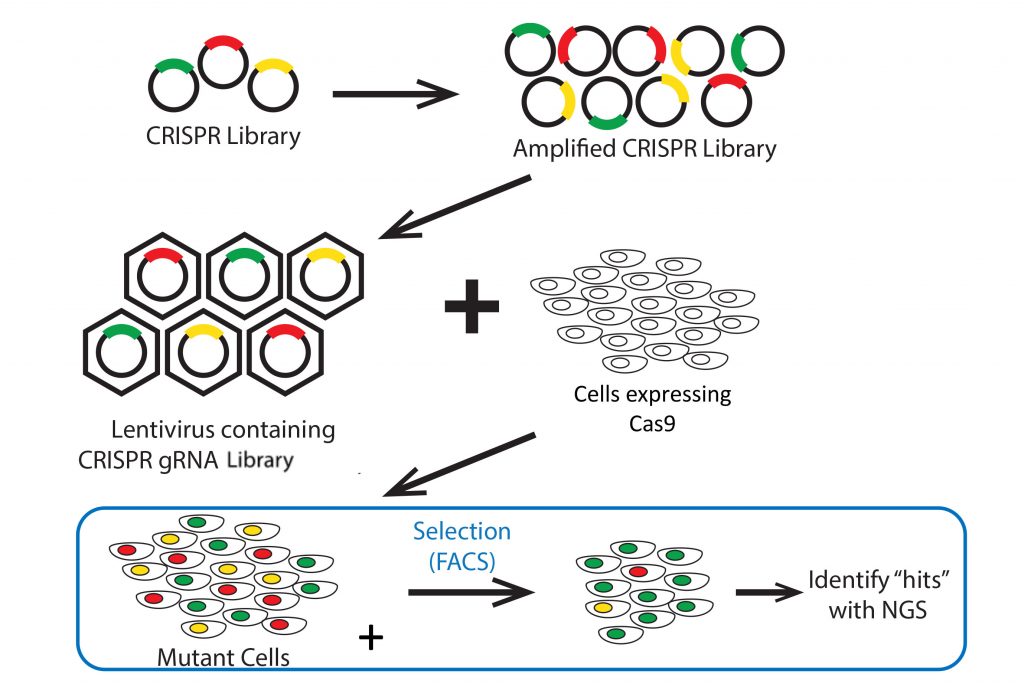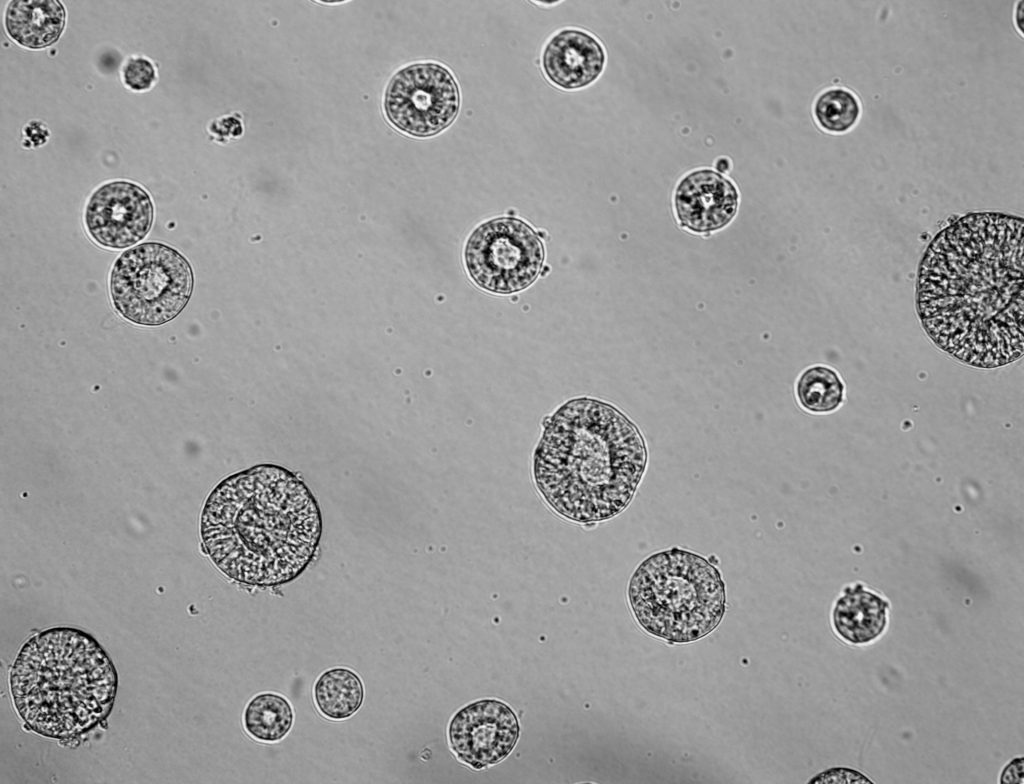Background
CRISPRs (clustered regularly interspaced short palindromic repeats) are a family of short DNA sequences present in prokaryotes. The CRISPR sequences in prokaryotes are originally derived from infectious phages, and help guide the enzyme Cas9 endonuclease to cleave cognate viral DNA sequences as part of a prokaryotic anti-viral response system. Since 2013, CRISPR-Cas9 technology has been harnessed to perform genome editing as well as targeted gene activation and interference in mammalian cells.
Our laboratory uses CRISPR knockout, activation, and interference libraries in mammalian cells (including induced pluripotent stem cells) to determine the genetic pathways responsible for a variety of fundamental processes, including regulation of cell death, oxidative stress, cell size, organelle mass, and the turnover and trafficking of specific proteins.

